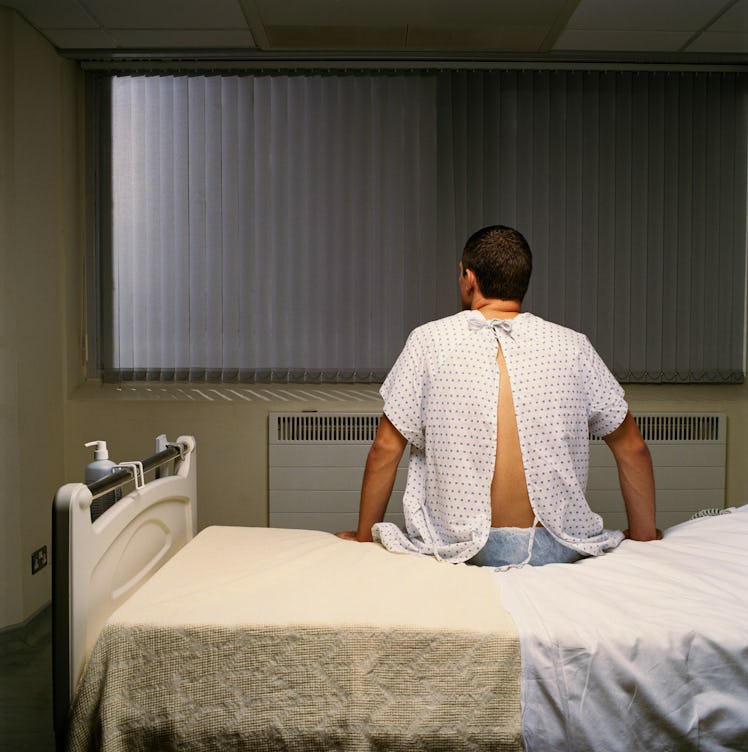Colorectal Cancer Is Becoming More Common For People Under 50. But Why?
What you should know about the rise of colorectal cancer in younger adults — and symptoms to look out for.

Colorectal cancer is the second leading cause of cancer death in the U.S. and the first for nonsmokers. Part of the reason why is a disturbing trend of increasing case numbers in young people under 50 across the globe, the U.S. included. Now, a recent study of five European countries, published in the journal Annals of Oncology, predicts that death from colorectal cancer will increase for young men in Italy, Poland, Spain, and the UK and for young women in Germany in 2024 — which would be the first time these deaths would rise in those aged 25 to 49 in some of these countries.
That rise is notable because mortality from colorectal cancer as a whole has been on the decline, and is expected to continue to decrease in the European Union and UK — especially among those aged 70 and older. This trend is consistent with other high-income countries like the U.S., largely due to improvements in screening, diagnosis, and treatment.
Yet these improvements aren’t enough to counter the increase in colorectal cancer in young people. Another 2023 study found that early-onset colorectal cancer has increased in 190 out of 204 studied countries and territories, with middle- and high-income countries facing faster annual increases. These early-onset cases are also more likely to be advanced and aggressive, according to a 2021 study.
Experts aren’t entirely sure what’s behind this surge of cases in young people, but there are likely factors at play. For one, alcohol consumption is linked to early-onset colorectal cancer. One study found that the risk of early-onset colorectal cancer increases by 7% for those who have one to two drinks per week, 14% for three to four drinks, and 27% for five or more drinks per week compared to non-drinkers.
Other risk factors for colorectal cancer include being overweight, not being physically active, eating a diet high in red meats and processed meats, eating a low-fiber diet, and smoking. About 74% of Americans are overweight or have obesity, 72% don’t get enough exercise, and 12% smoke. Family history of colorectal cancer or polyps and personal history of inflammatory bowel disease are also risk factors. African Americans and Native Americans are at increased risk, largely due to racial disparities in screening and treatment.
Colorectal Cancer Screening and Signs
Despite increases in early-onset colorectal cancer, experts in the U.S. recommend that screening for colorectal cancer begin at age 45 for people without symptoms and at average risk for the disease. This recommendation was made in 2021 and updated a 2016 decision to only recommend screening for those aged 50 to 75.
There is currently not enough evidence to support that screening would be beneficial for people under age 45; despite the relative increase in cases in this age group, the absolute number of cases is still relatively small. So it doesn’t make sense for most people to get them earlier because of the risks and costs associated with screening.
But according to Yale Medicine, people at increased risk, such as those with a family history of the disease, may want to talk to their doctor about getting screened beginning at age 40.
Young people should be on the lookout for symptoms indicative of colorectal cancer and bring them up to their doctor. If they persist, a colonoscopy is probably warranted.
“If anyone has any change in their bowel habits, if they have any bleeding — even if they think it’s a hemorrhoid, and it doesn’t go away — just get a colonoscopy,” colorectal surgeon Vikram Reddy, M.D., Ph.D., told Yale Medicine.
According to the Mayo Clinic, signs of colorectal cancer include:
- “A change in bowel habits, such as more frequent diarrhea or constipation.
- Rectal bleeding or blood in the stool.
- Ongoing discomfort in the belly area, such as cramps, gas or pain.
- A feeling that the bowel doesn't empty all the way during a bowel movement.
- Weakness or tiredness.
- Losing weight without trying.”